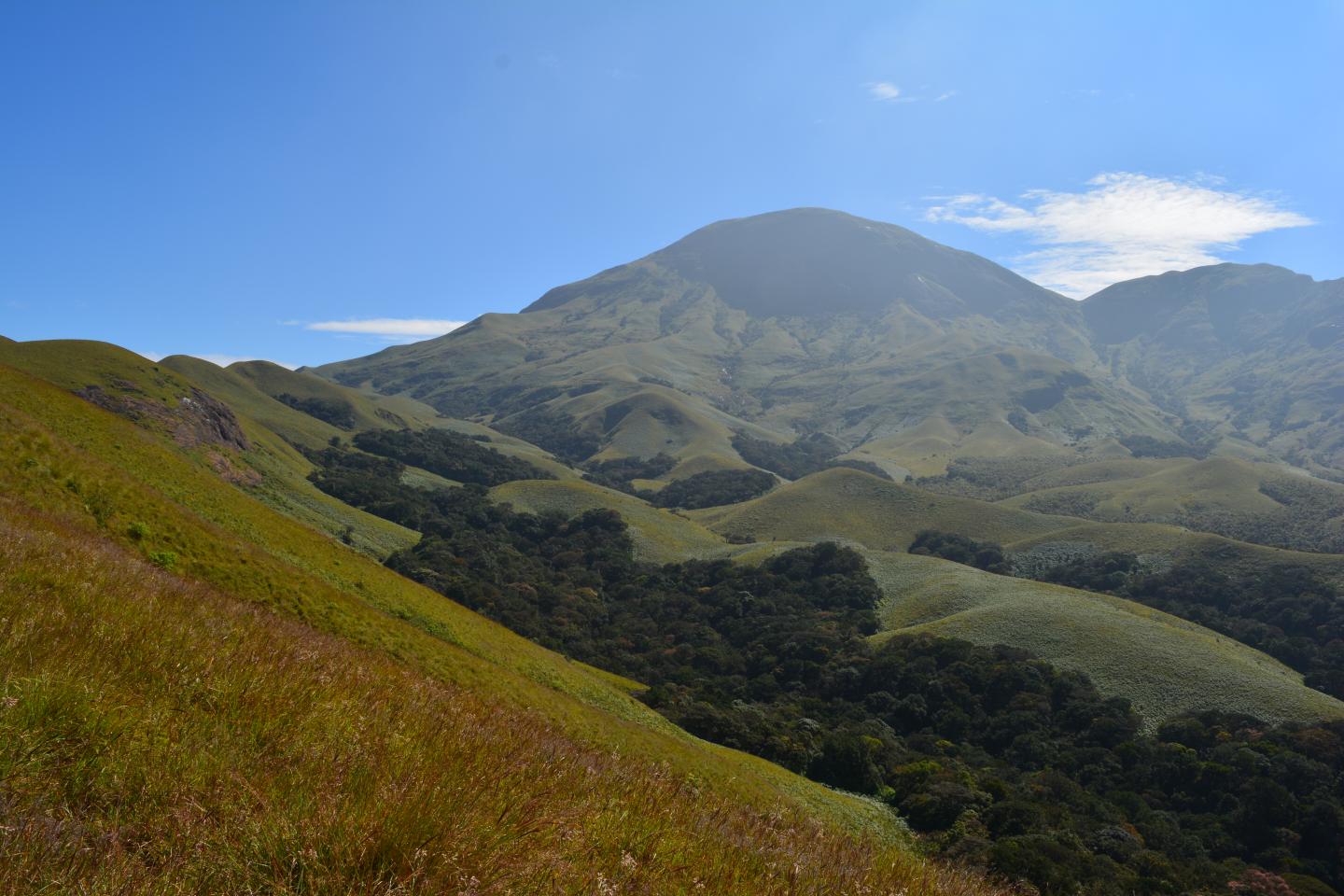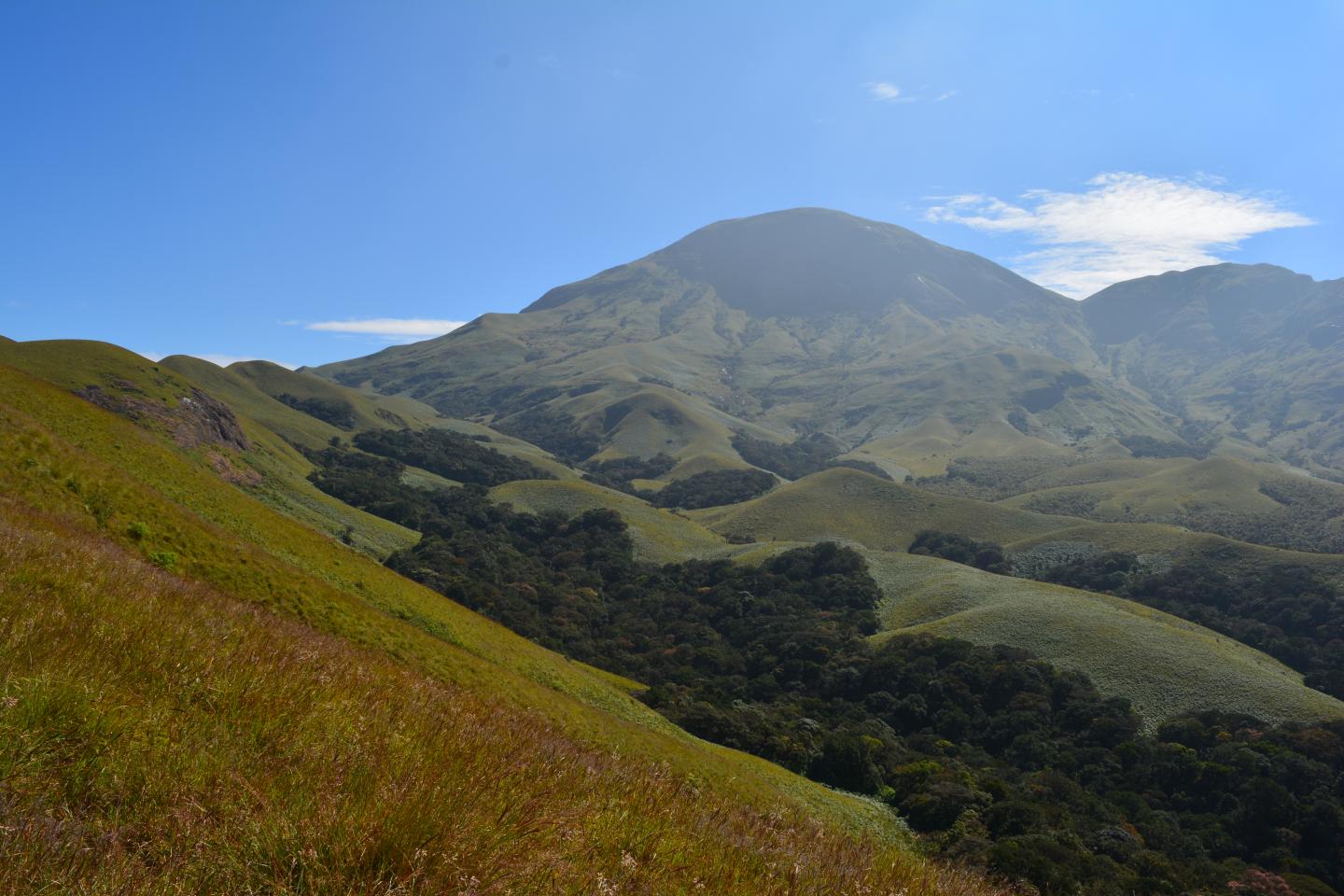
Credit: Dr S Prasanth Narayanan
The Western Ghats mountains lie at the southwestern continental margin of Peninsular India and extend all the way from Gujarat to Kerala. The massif has earned its place amongst the eight 'hottest' biodiversity hotspots in the world.
There is a great variety of vegetation types which, coupled with the high rainfall and the moderate yearly temperature in the Western Ghats, provide many different habitats. Therefore, the mountains an area rich in earthworm, as well as amphibian and reptile diversity.
The two new species, named Drawida polydiverticulata and Drawida thomasi, have been discovered in the Western Ghats mountain ranges in Kerala by scientists Dr. S. Prasanth Narayanan, Mr. S. Sathrumithra, Dr. G. Christopher, all affiliated with Mahatma Gandhi University and Dr. J.M. Julka of the Shoolini University, India. They belong to the primitive family Moniligastridae. The species are described in the open access journal ZooKeys.
The new earthworms are distinguished by a set of characters. For one of them – Drawida polydiverticulata – there were peculiar features which determined its species name (polydiverticulata). It turned out that its multiple lobes, also called diverticulums, an organ located in the front of its body, are unique amongst the members of the genus. This species was found to be widespread in the protected shola grasslands of the Munnar region, including Eravikulam National Park, Pampadun Shola National Park and Chinnar Wildlife Sanctuary.
The second new earthworm, Drawida thomasi, was collected at the Kozhippara Waterfalls near Kakkadampoyil, at the border between Malappuram and Kozhikode. The species name (thomasi) is a tribute to Prof. (Dr.) A.P. Thomas, the Director of the Advanced Centre of Environmental Studies and Sustainable Development (ACESSD), Mahatma Gandhi University, "who initiated the taxonomical studies on the earthworms in Kerala after being at a standstill for almost a century."
In addition to the new species, the scientists also report the occurrence of five species of the same genus that have not previously been recorded from the state.
To date, there are 73 species of the genus Drawida confirmed to be living in the Indian subcontinent. However, the greatest concentration (43 species) is found in the Western Ghats. The genus has an important centre of speciation in the southernmost state of Kerala.
Prior to this study, there had been sixteen Drawida species known from the state with ten of them being unique. The present discovery of two new species and five new local records further contributes to the vast species richness of the genus in the state.
At present, there are about 200 species known in the genus Drawida. Their habitats are spread across India throughout the Indochina region to southeastern Asia and up to the north in Japan.
###
Original source:
Narayanan SP, Sathrumithra S, Christopher G, Julka JM (2017) New species and new records of earthworms of the genus Drawida from Kerala part of the Western Ghats biodiversity hotspot, India (Oligochaeta, Moniligastridae). ZooKeys 691: 1-18. https://doi.org/10.3897/zookeys.691.13174
Media Contact
Dr S Prasanth Narayanan
[email protected]
@Pensoft
http://www.pensoft.net
Related Journal Article
http://dx.doi.org/10.3897/zookeys.691.13174





